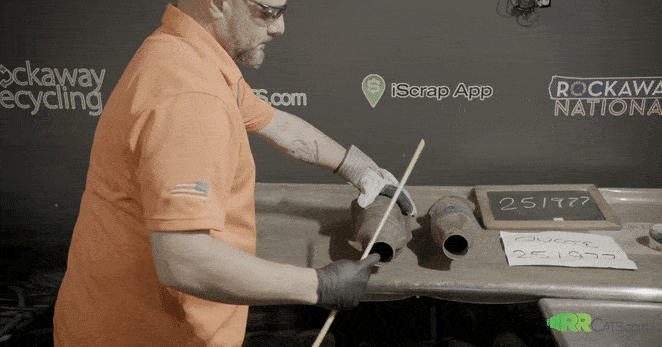Catalytic Converter Costs and Recycling: Offset Expenses with RRCats
Posted: May 23, 2023
Catalytic converters are vital components in reducing vehicle emissions, but they can require repair or replacement, which can be costly. At RRCats, we understand the financial burden this places on vehicle owners. This article will explore the expected costs of repairing or replacing catalytic converters while highlighting the benefits of recycling with RRCats to offset these expenses.
We will also discuss the legal requirements for recycling catalytic converters, including the need for identification, vehicle identification numbers (VINs), and proof of ownership.
How much does a catalytic converter cost?
 Regarding catalytic converter repair or replacement, costs can vary depending on vehicle make and model, converter type, and labor charges. On average, repairs can range from a few hundred dollars to over a thousand dollars, while replacements can be even more expensive. Understanding these costs will help you prepare financially.
Regarding catalytic converter repair or replacement, costs can vary depending on vehicle make and model, converter type, and labor charges. On average, repairs can range from a few hundred dollars to over a thousand dollars, while replacements can be even more expensive. Understanding these costs will help you prepare financially.
The Impact of Recycling with RRCats
RRCats is committed to sustainability and offers a solution to help offset catalytic converter repair or replacement costs through recycling. By recycling your old converter with us, you can receive compensation based on the scrap value of the precious metals it contains. This process significantly reduces the overall expense associated with repairs or replacements, allowing you to save money while contributing to environmental conservation.
Requirements for Catalytic Converter Recycling
Recycling catalytic converters involves complying with legal regulations to prevent theft and ensure accountability. At RRCats, we strictly adhere to these guidelines, ensuring transparency and responsible recycling practices. The following legal requirements must be met when recycling catalytic converters:
- Identification (ID): To sell your catalytic converter for recycling, you must provide valid identification, establishing your identity as the rightful owner.
- Vehicle Identification Number (VIN): RRCats will request the Vehicle Identification Number (VIN) of the vehicle from which the catalytic converter was removed. This helps verify the ownership and traceability of the converter.
- Proof of Ownership Documentation: Providing documentation, such as the vehicle’s title or registration, is essential to demonstrate legal ownership of the vehicle and the associated catalytic converter.
Offsetting Your Costs and Promoting Sustainability
Recycling your old catalytic converter with RRCats offsets repair or replacement costs and supports sustainable practices. Extracting and recycling valuable metals from converters reduces the need for new resource extraction, conserves energy, and minimizes environmental impact. Choosing to recycle with RRCats is a financially and environmentally sound decision.
Get Your Quote Now
Did you have an Emissions Test Failure?
A failing catalytic converter can lead to a vehicle failing emissions tests, resulting in potential fines and penalties. Moreover, a compromised converter indicates reduced efficiency in emissions control. If your catalytic converter fails emissions tests, prompt attention is necessary to meet environmental regulations and maintain your vehicle’s performance.
Catalytic converter repair or replacement costs can burden vehicle owners. However, recycling your old converter with RRCats can offset these expenses while actively participating in sustainable practices. Remember to comply with legal requirements, providing proper identification, the vehicle’s VIN, and proof of ownership.
Recycling catalytic converters helps your finances and contributes to the preservation of our environment. Join RRCats in promoting a greener future while alleviating the financial strain of catalytic converter repairs or replacements.
FAIR. CONSISTENT. RELIABLE.
Send your photos to receive a quote today!
GET QUOTE
We at RRCats.com want to thank you for your patronage and allowing us to earn your business & service your Catalytic Converter.









